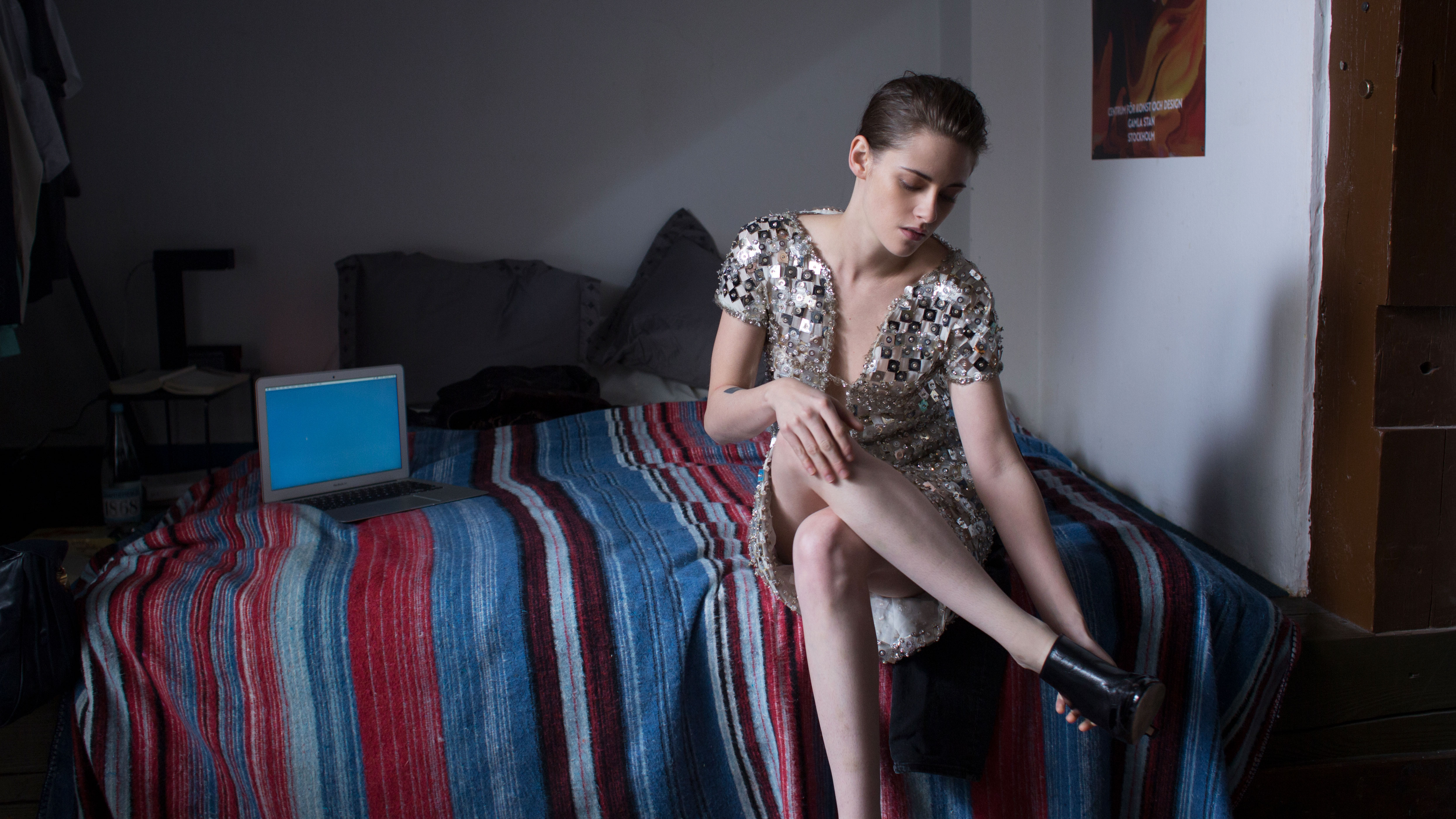Director Olivier Assayas’s latest features the now-requisite fine Kristen Stewart performance, typically absorbing Assayas mise-en-scène, and a way more explicit representation of the supernatural than I had expected, even from early on. Of course it defies genre — it’s not primarily a horror movie or a suspense thriller but simply a character study, with the delicacy that term typically implies but also with a freakishness it doesn’t usually portend. I’ll cheerfully admit that the story is underwritten, particularly the half-baked police procedural that threatens to swamp the third act (Assayas backs away from it before it becomes too, too much) but the sleepy nightmarishness of it all appeals to me. Stewart, too, seems forever in a somnolent state of dressing and undressing, her vulnerability on display; she’s lost in the world, laden with sadness, weary beyond her years. She gets at something about grief, yes, but also mortality — the pale fragility of the human body and perhaps, though she is loath to concede it, the delicate impermanence of the soul. Spooky, for real.
mother!
58/100Having narrowly survived his harrowing brush with mainstream Hollywood filmmaking, Darren Aronofsky is back in bonkers tortured-artist mode with this allegorical freak-out about poetry, celebrity, and the act of creation. More impressive than the density of metaphors running through this plainly Biblical yarn is the ferocity of Aronofsky’s execution. No matter what happens, he keeps the camera close to Jennifer Lawrence; for the bulk of the film, any shot she doesn’t actually appear in is a point-of-view shot. So we experience events as she does — her property trespassed upon, her authority disrespected, she remaining in good-wife mode longer than is healthy. And Aronofsky directs the hell out of the film’s third act, which unfolds with a disorienting kind of dream logic that belies the fundamental absurdity of events on screen. I don’t find the central metaphor(s) so compelling in itself, but I think the film works on an emotional level as long as it’s fundamentally Lawrence’s story. She is the dreamer, and this borderline surrealist frenzy is her nightmare, and it’s spooky and scary and richly suggestive and I’m completely on board. But then the film establishes its continuity with the Aronofsky Cinematic Universe, which is kind of a bummer. Once the creator presents his revelation — God’s love for humankind, eternal recurrence, etc. — it becomes clear it’s not really her story. It’s Aronofsky’s story. It’s always been Aronofsky’s story. And I just can’t relate.
Wonder Woman
58/100In which the most iconic female comic book superhero finally gets a feature film to call her own. Much of this is delightful — Gal Gadot’s performance is magnetic, and Patty Jenkins gives the film’s engrossing midsection an authentic screwball savor, presenting Gadot’s Diana as more frankly sexy than I had been led to expect and keeping sweet, blue-eyed Chris Pine in exactly the right place throughout. It’s a shame she’s saddled with a typical superhero screenplay that eventually brings the whole endeavor crashing down. The reversed gender roles give Jenkins a fighting chance at making some hoary tropes feel new again, and she slips into a confident groove for most of the film’s running time, culminating in the second act’s bracing, triumphant, Diana-led sortie into No Man’s Land. Like her hero, Jenkins is the man who can. But she can’t do much with the gloomy, CG-addled third act, which resembles a PlayStation cut scene staged inside a vat of Dr. Pepper and stomps all over what should be the film’s emotional payload. (It says a lot that the real problem with Wonder Woman is that it shares too much DNA with the rest of DC’s cinematic endeavors.) Still, Jenkins has her own enthusiasm and Gadot’s wild, wide-eyed idealism on her side throughout. Together, they go a long way.

